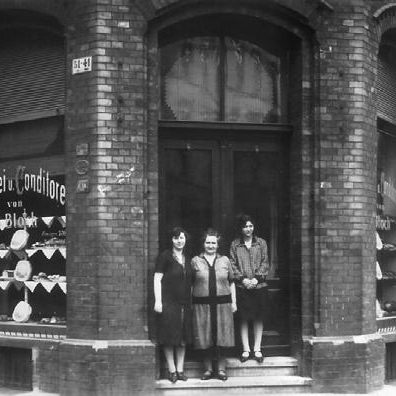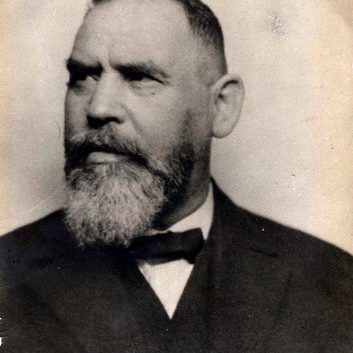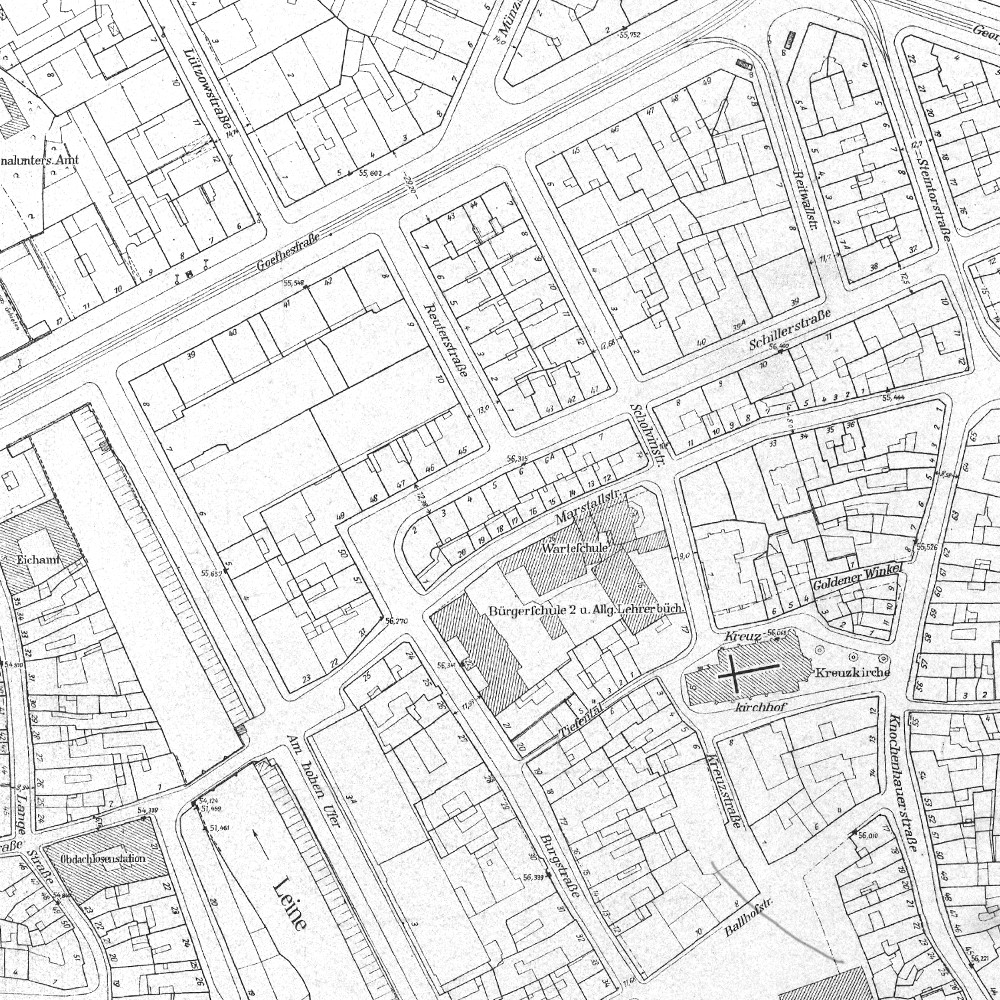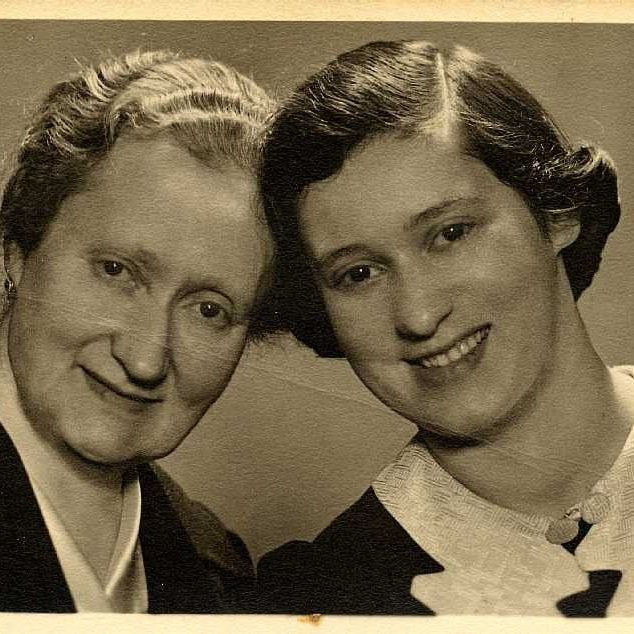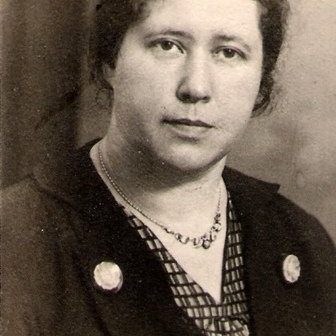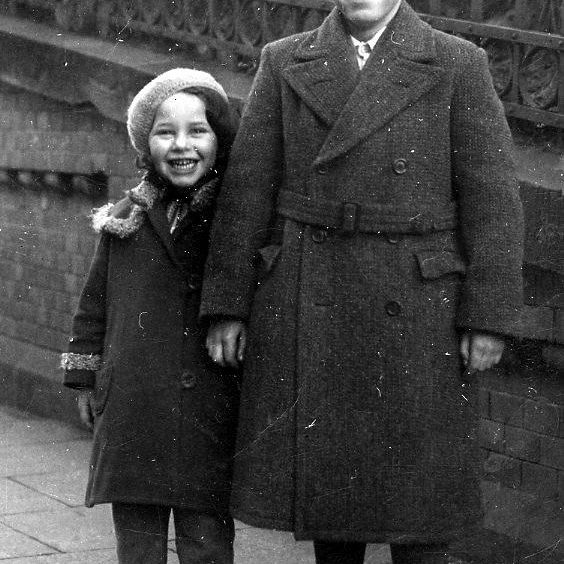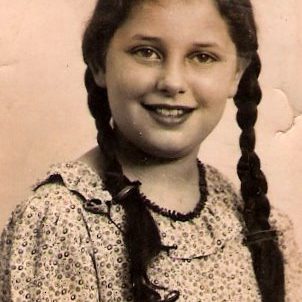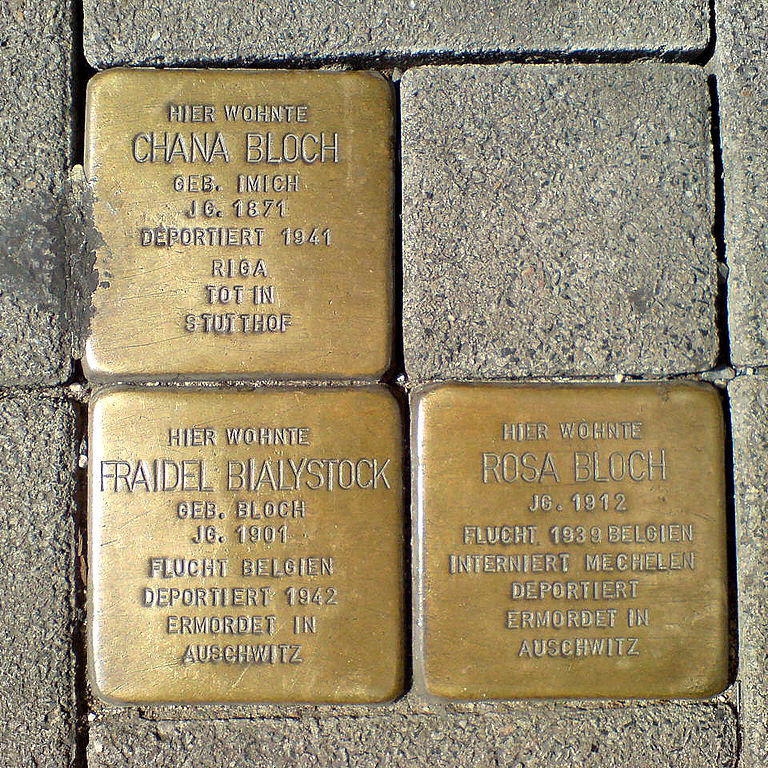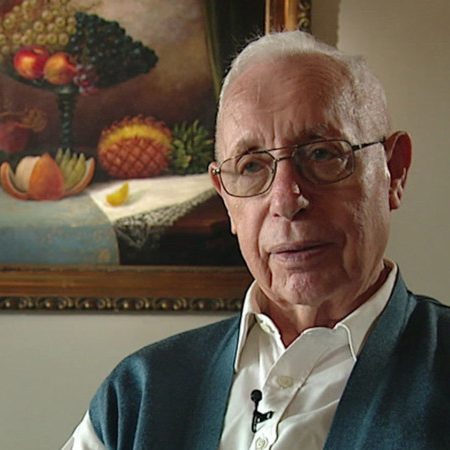The Bloch family moved to Hanover from what is now Poland in 1905 and thus belonged to the approximately 20 per cent of Jews in Hanover’s Jewish population that had East European roots. Between 1903 and 1906, the Jews in Russian Poland suffered devastating pogroms.
A baker’s family
In 1905, Samuel Bloch (1870-1934) and his wife Chana Bloch, née Imich (1871-1941) move with their four children (Heinrich, born in 1897, Franja and Joseph, born in 1902, and Zilli, born in 1904) from Częstochowa – at that time part of the Russian Empire – to Hanover, where two more children are born (Max in 1907 and Rosa in 1912). Samuel and Chana build up a new life running a bakery in the street known at that time as Schillerstrasse 41 (nowadays it is called Am Marstall 14). The first mention of Samuel Bloch as being the proprietor of the corner house appears in the Hanover city address book for 1923: Ground floor shop, upstairs living quarters.
In 1922, their daughter Franja marries in Hanover the draper Heinrich Bialystock from Bremen. Their son Moshe Martin is born in Hanover in 1923, their daughter Miriam in Bremen in 1929. The young family make their lives in Bremen where Heinrich Bialystock runs a flourishing men’s clothing shop called “Adler”.
Persecution
Samuel Bloch dies in 1934, the shop in Schillerstrasse is leased out, and according to the address book, his widow Chana owns the property until 1937. The German citizenship that was granted to Heinrich Bialystock and his family in Bremen in 1932 is withdrawn in 1934 under the Nazi regime. This makes them “stateless foreigners”. In 1936, Heinrich is sentenced to three months in prison for a non-offence: the “unauthorised sale of official party uniforms”. After serving his sentence, he is placed in “protective custody” as a person with a criminal record and is only released on the condition that he leaves Germany within 48 hours. In June 1938 he flees to The Netherlands. After his visa expires, he moves to Belgium.
Futile escape to Belgium
Meanwhile, his wife Franja tries to arrange the sale of the Bremen shop premises. On the night of the pogroms in 1938, the shop windows are smashed and the shop is demolished. When the proceeds of the sale are transferred to the account of a bank in Antwerp, a Dego tax [a duty paid to the Deutsche Golddiskontbank or Gold Discount Bank upon emigration] of 90 per cent is levied in favour of the Reich treasury. Franja, her sister Rosa from Hanover, her daughter Miriam and her husband Heinrich meet in Antwerp in 1939 in what appears to be a safe Belgium. They have already managed to obtain the necessary sponsorships; however, since the quota for US American visas is limited, they have to wait indefinitely. In 1940, the German Wehrmacht [armed forces] occupies The Netherlands and Belgium and blocks the route to freedom for the refugees.
Death in the Holocaust
Chana Bloch is sent on the first deportation from Hanover to the Riga Ghetto in mid-December 1941. Their last address is recorded as the “Judenhaus” [“Jewish house”] Josephstrasse 22 (now Otto-Brenner-Strasse) – a few hundred metres away from their former home in Schillerstrasse. She dies in Stutthof concentration camp near Danzig. Franja, Heinrich and Miriam Bialystock as well as Rosa Bloch are deported to Auschwitz on 21 September 1942, from Mechelen/Malines transit camp in Belgium where they had been held, and murdered immediately on their arrival. Heinrich Bialystock’s parents hide in Nice in southern France, but only his mother Malka survives the persecution. Stolpersteine [stumbling stones] for Franja, Heinrich and Miriam Bialystock have been set in the pavement at the site of their former shop at Am Brill 14 in Bremen.
Salvation in Palestine
Franja’s son Martin ekes out a living in The Netherlands, separate from the family, by doing casual work and joins the Zionist youth movement. Youth Aliyah [Jewish organisation that rescued thousands of Jewish children from the Nazis during the Third Reich by resettling them in Palestine] helps him to emigrate to Palestine. March 1940, while en route to the emigration port of Marseille, is the last time he ever sees his parents and sister. Apart from his grandmother Malka, he is the only member of his family to survive. From Palestine, he joins the British forces as a volunteer, fighting in North Africa and Italy. With time, he starts a family. His wife is a survivor of Auschwitz concentration camp. Two daughters are born in Palestine, later Israel. Miriam, the elder child born in 1948, is named in memory of her aunt who was murdered in Auschwitz. Martin, her father, dies near Tel Aviv, Israel, in 2020 at the age of 96. Despite the persecution, he never lost contact with Bremen, and in 2009, he speaks at the memorial for the victims of the Reich Pogrom Night [the November Pogroms] in Bremen and, together with his daughter Miriam and grandson Yuval Dvir, is guest of honour at the Nacht der Jugend [Youth Night] in Bremen’s City Hall.
Additional online information
Wikipedia entry: East European Jews and West European Jews [in German]
Stolpersteine in Bremen Franja Bialystock, née Bloch, *1901 [in German]
The Bialystock Jewish family: Humiliated – Disenfranchised – Persecuted (PDF) [in German]
Speech given by Frank-Walter Steinmeier [Federal President], 2020: “The perpetrators were people, they were Germans” [in German]
buten u binnen: Contemporary witness Martin Bialystock reports on the Pogrom Night in Bremen [in German]
Culture of Remembrance Stolpersteine in Hanover
The Stolpersteine Art Project Website
Further reading: Click here
Texts and images: Michael Pechel

